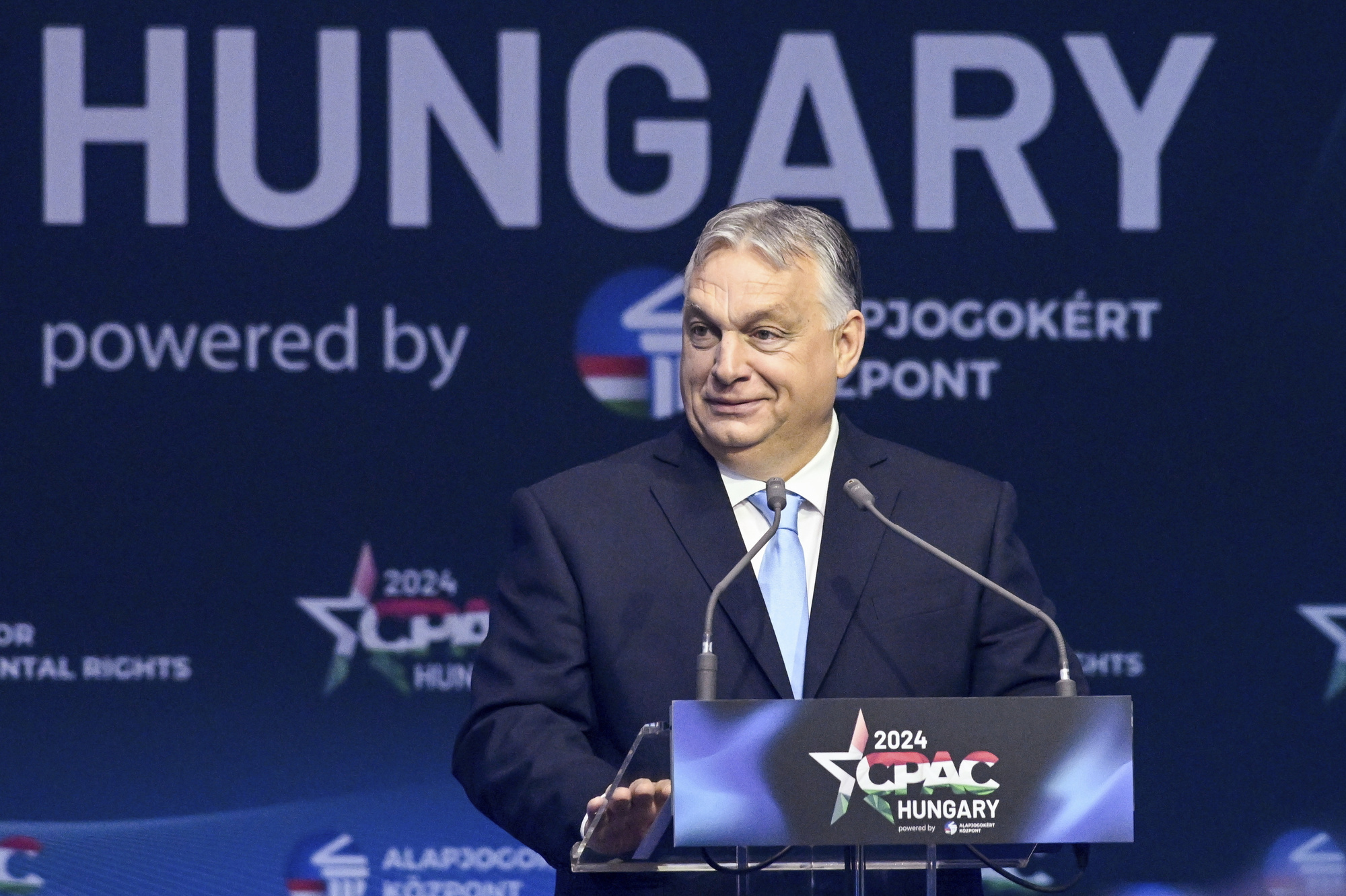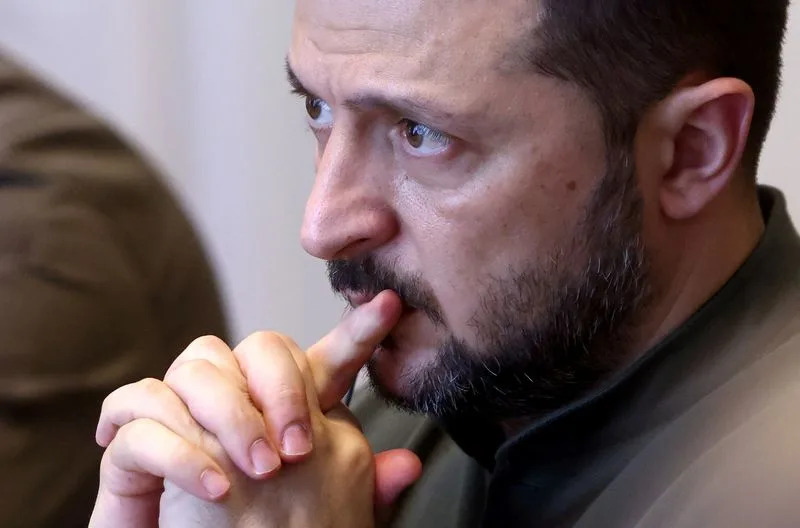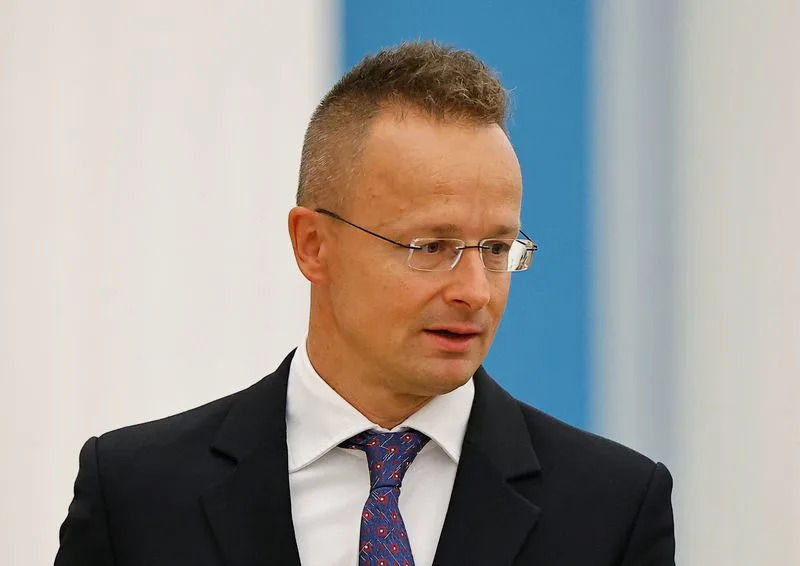Anonymous EU diplomats told Politico that there is “very clear political disapproval” of Hungarian Prime Minister Viktor Orbán’s recent trips to Moscow and Beijing, with ongoing discussions about how the EU should respond.
10/07/2024

Politico: Hungary’s EU Council presidency in jeopardy after visits to Moscow and Beijing
European Union leaders criticize the “peace mission” of Hungarian Prime Minister Viktor Orbán after he visited Kyiv, Moscow, and Beijing. These visits may jeopardize Hungary’s presidency of the EU Council, anonymous diplomatic sources told Politico.
After Hungary assumed the rotating presidency in the European Union’s Council, Orbán met with Russian President Vladimir Putin on 5 July, just days after visiting Ukrainian President Volodymyr Zelenskyy in Kyiv. Then he arrived in China to meet with Chinese leader Xi Jinping on 8 July, on the same day when Russian forces bombed a children’s hospital in Kyiv, and neither China nor Orbán condemned Russia for the attack.
EU ambassadors will meet in Brussels on 10 July to discuss Hungary’s EU presidency and Orbán’s recent trips.
One anonymous EU diplomat told Politico that there are growing concerns about Orbán’s ambiguity in representing Hungary versus the EU as a whole.
Another EU diplomat told Politico that the meeting with Putin will permanently overshadow the Hungarian presidency, stating, “With such a meeting the presidency ends before it has really begun.”
A third anonymous EU diplomat said that there is “very clear political disapproval” of Orbán’s actions, and discussions are ongoing about how to respond to this, according to Politico.While it is unlikely that the EU will take immediate action against Hungary, analysts suggest that there are mechanisms to deprive Orbán of the presidency if EU leaders show determination to address his “shock and awe” diplomacy aimed at ridiculing the EU, according to Dániel Hegedűs, a senior fellow at the German Marshall Fund.
On 2 July, during his visit to Kyiv, Viktor Orban proposed a ceasefire to Ukrainian President Volodymyr Zelenskyy to speed up peace negotiations with Russia. Zelenskyy rejected Orban’s proposal for a temporary ceasefire, emphasizing that this would allow Russia to regroup and attack again later.
Related:
- European Pravda: Orban in a letter to EU leaders promotes Russia’s “peace for Ukraine”
- “Peace Mission 3.0”: Hungarian Prime Minister Orban arrives in Beijing
- ISW: Orbán seeks to shift West’s attention from supporting Ukraine to peace talks
- Ukraine rebukes Orbán’s Moscow visit: “No agreements without us”
Reuters
Mon, 8 July 2024

Ukraine's President Zelenskiy visits Warsaw
KYIV (Reuters) - President Volodymyr Zelenskiy said on Monday Hungarian Prime Minister Viktor Orban could not mediate between Russia and Ukraine to end the 28-month war, a task he said could only be undertaken by world powers such as China, the U.S. or EU.
Orban visited Kyiv and Moscow for talks last week and met Chinese President Xi Jinping on Monday, describing his unexpected trip to Beijing as the third-leg of a "peace mission".
As world leaders prepare to head to a NATO summit which starts on Tuesday in Washington, Ukraine's Zelenskiy said only powerful economies or countries with armed forces much stronger than Russia's could manage the task of mediation.
"Are there many such countries around the world? Not many. I believe the U.S., and China are such countries. And the EU, not one country, but the whole EU. This could really be an intermediary mission," Zelenskiy told a news conference during a visit to neighbouring Poland.
Zelenskiy said Orban's negotiations with Putin, which provoked a rebuke within the European Union, had not been coordinated with Kyiv.
"Even if (Putin) meets with a particular state, this does not mean he wants to end the war," he said.
Kyiv remains open to proposals from other countries on how to shape the path to peace, but they should align with the Ukrainian vision, in particular a 10-point peace plan, Zelenskiy added.
Ukraine hopes to hold a second international summit to consider its proposals for peace later this year. China, which has close ties to Moscow, did not attend the first meeting in June.
It has been promoting a six-point peace plan it issued with Brazil in May, proposing an international peace conference "at a proper time" and calling for equal participation by both Ukraine and Russia.
(Reporting by Olena Harmash and Yuliia Dysa; Editing by Hugh Lawson and Helen Popper)
Exclusive-Hungary sees 'chance for peace' in Ukraine if Trump returns, foreign minister says
Simon Lewis
Wed, 10 July 2024

Hungary's Prime Minister Orban and Russia's President Putin attend a press conference in Moscow
By Simon Lewis
WASHINGTON (Reuters) -Hungary sees a potential return of former U.S. President Donald Trump as a "chance for peace" in Ukraine, Foreign Minister Peter Szijjarto said on Wednesday as a NATO summit began with most allies hoping to send a firm message of support for Kyiv.
Hungarian Prime Minister Viktor Orban visited Moscow last week on what he called a peace mission, but the initiative angered some of Budapest's fellow NATO allies, who said the trip handed legitimacy to Russian President Vladimir Putin's claims to Ukrainian territory seized since Russia's 2022 invasion.
The meeting of NATO leaders takes place in Washington as U.S. President Joe Biden is under pressure after a disastrous June 27 debate that boosted Trump in the polls ahead of a Nov. 5 election and raised concerns among allies about how the Republican candidate would approach the alliance and the war in Ukraine.
In an interview with Reuters in Washington, Szijjarto said Hungary's aim was to bring an end to the war through peace talks involving both Russia and Ukraine.
"I think a very strong external impact must take place in order to make them negotiate at least," Szijjarto said. "Who has the chance for that in the upcoming period? That's only President Trump if he is elected."
Orban's recent meetings with both Putin and Ukrainian President Volodymyr Zelenskiy had demonstrated the vast distance separating the two sides, and other Western leaders were unwilling or unable to bring them together, he said.
Trump has said he would quickly end the war. He has not offered a detailed plan to achieve that, but Reuters reported last month that advisers to the former president had presented him with a plan to end the war in part by conditioning any future aid to Kyiv on Ukraine joining peace talks.
"We see a chance for peace if President Trump is winning. We see a chance for good Hungary-U.S. relationships if President Trump is winning," he said.
Hungary's position on Ukraine contrasts to other NATO leaders, including Biden, who say Kyiv must decide when to negotiate an end to the war. Ukraine says it will not give up any territory in a peace deal.
Szijjarto earlier met Ukrainian Foreign Minister Dmytro Kuleba, who said any initiatives to end the war should not be based on Russian narratives, Kuleba said on X.
Szijjarto said Hungary does not see Russia as a threat to NATO or European Union members, saying Russia's leaders are "rational" and would not risk a direct conflict with the West.
'POLITICAL MISTAKE'
Orban's visits to Kyiv, Moscow and Bejing, where he also discussed the war in Ukraine, have been sharply criticized by European Union members who said it gave the impression he was acting on behalf of the bloc. Hungary took over the rotating EU presidency this month.
The chair of the European Council, Charles Michel, said that by holding talks with Putin just days after taking on the role, Orban was showcasing a position not shared by the vast majority of the EU's national leaders, who are seeking to isolate Russia.
"This was a political mistake," he told reporters in Washington.
Szijjarto dismissed the concerns over Hungary's use of the presidency as "bureaucratic" and said the Orban's delegation did not use EU flag during the visit, signaling it was not representing the bloc.
The U.S. ambassador in Budapest, David Pressman, said last week that Orban's meeting with Putin and Szijjarto's repeated visits to Moscow were damaging to Hungary's relations with its allies.
"This is not about 'peace'; it's about profit," the ambassador said on X.
Szijjarto said the comment was "unacceptable" interference from a diplomat.
"What the U.S. ambassador is doing in Budapest is political activism...He is the leader of the opposition," he said.
NATO allies are expected to sign off on an arms and training package for Ukraine during the summit.
Szijjarto said Hungary was not standing in the way of NATO approving the plan but would not participate in it.
"We see a huge escalatory risk there," he said. "Looking at this war from a couple hours' drive or looking at this war from a perspective of a 10-hour flight. That's a different aspect, believe me," he said, citing the plight of Ukrainian refugees in Hungary as well as ethnic Hungarians inside Ukraine.
(Reporting by Simon Lewis; additional reporting by Anita Komuves and Andrew Gray; Editing by Angus MacSwan)
No comments:
Post a Comment